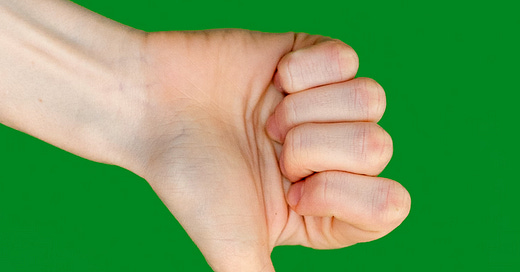Public health shouldn’t look down on the public
If ‘everyone’ disagrees with us, we need to think why that is
There’s a cartoon I’ve seen quite a few times in public health talks at conferences over the past year or two. I get why people show it, but I find it increasingly frustrating.
It’s a drawing of Winnie the Pooh talking to Piglet, with new COVID-related captions overlaid:
“But how will we know if our pandemic guidelines work?” asked Piglet.
“The world will think we overreacted,” said Pooh.
“So even when we’re right, everyone thinks we’re wrong?”
“Welcome to Public Health,” said Pooh.
And Piglet understood.
I can’t find the original source of the creation, but it’s cropped up in various talks and various tweets.
I can understand why a public health researcher might share this message in a conference presentation. There’s been a lot of hostility distracted towards the field during COVID, and sometimes it’s good to have a reminder to keep going in the face of adversity.
But it’s the inevitability and divisiveness of the message that bothers me. The idea that ‘the world’ will always think we’re wrong, because they won’t understand the work we’re doing.
The implication is that ‘the public’ aren’t capable of grasping the idea that a bad outcome can be prevented. That ‘we’ in public health get how counterfactuals work, but the concept is beyond ‘everyone’ else.
I disagree with this attitude. Science writer Tim Radford once said: ‘Don’t overestimate your reader’s knowledge and don’t underestimate their intelligence.’ People may not be familiar with specific jargon or analysis methods, but that doesn’t mean they can’t understand tricky concepts. What it does mean is that we need to work at engagement and communication. Why are some people unsure of public health policies? What information are they missing - or what context are we missing?
Some individuals will unfortunately have incentives that are not aligned with understanding and improving health (e.g. those journalists that benefit from stoking controversy or polarisation). But that doesn’t mean that all engagement is hopeless, and that the public will inevitably be against public health.
As a field, I think we need to make the effort to engage with wider audiences. This means communicating concepts that might be non-obvious to others – and hearing perspectives that might be non-obvious to us.
Rather than lamenting that nobody will understand what is ‘correct’, we should instead strive to move the discussion to a better, more constructive place.
To quote a real Winnie the Pooh line: ‘I always get to where I’m going by walking away from where I have been’.




Yesssssss x1000
Absolutely agree. I've been saying, since I recognized pieces of the issue in Summer 2020, that we did a poor job of communicating. We might convey data pretty well but if we did it in jargon and without explanation, we were not serving the public.